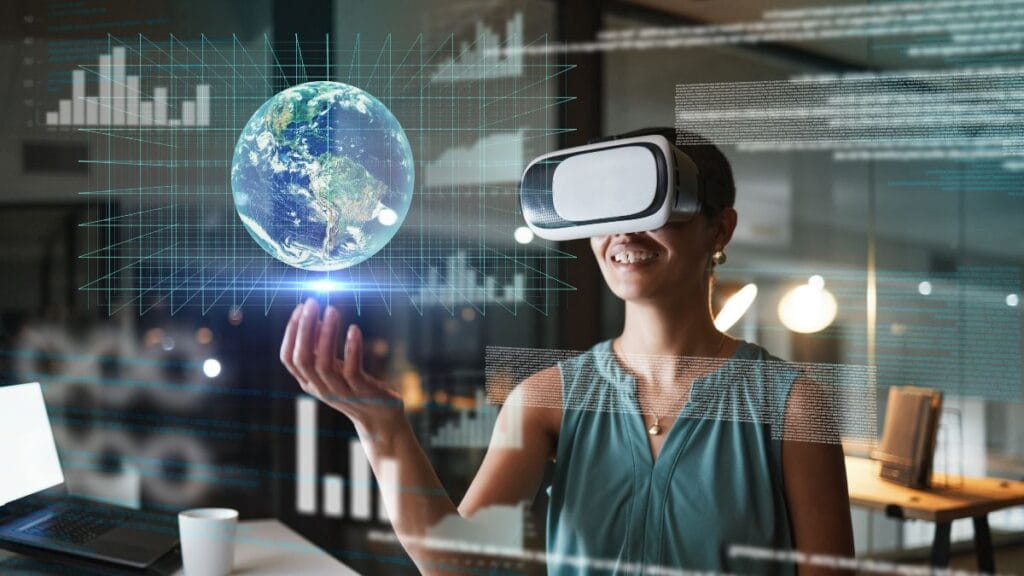The intersection of AI and future of work is reshaping industries, transforming job markets, and redefining careers. As artificial intelligence (AI) continues to evolve, its impact on employment trends is profound, offering both challenges and opportunities. This article delves into how AI is transforming the job market, creating new career paths, and driving a shift in required skills.
What is the Relationship Between AI and the Future of Work?

The rise of AI is fundamentally changing how businesses operate and how people work. While automation has always influenced job roles, AI goes beyond simple automation by enabling machines to perform complex tasks that were once the sole domain of humans. From AI-driven data analysis to machine learning-based predictions, the fusion of AI and future of work has led to the creation of new roles, industries, and possibilities.
How is AI Affecting Job Markets?
AI is disrupting traditional job markets by automating routine tasks and augmenting human abilities. Industries like manufacturing, healthcare, finance, and retail are seeing a shift where AI technologies take over repetitive tasks, allowing employees to focus on strategic, creative, and customer-facing roles. While some fear AI will lead to job losses, experts argue that AI and future of work will create new job opportunities in fields such as AI development, data science, and cybersecurity.
What Are the New Jobs Created by AI?
Contrary to the fear that AI will eliminate jobs, it is creating new opportunities in various fields. AI-related jobs are on the rise, with high demand for machine learning engineers, data analysts, AI ethicists, and software developers. Companies are also looking for professionals who can implement AI solutions to enhance business operations, improve customer experience, and optimize supply chains. These roles require a blend of technical skills and human creativity, emphasizing how AI and future of work are interconnected.
How is AI Transforming Career Development?
The rise of AI and future of work is also pushing for a shift in career development. Employees are now required to upskill and reskill to stay relevant in the AI-driven job market. As automation takes over repetitive and mundane tasks, workers must focus on acquiring skills in problem-solving, critical thinking, and emotional intelligence. This shift will lead to more dynamic and fulfilling careers as individuals move toward roles that require creativity, innovation, and human intuition.
What Skills Will Be In Demand in the AI Future?
As AI continues to evolve, the demand for specific skills will grow. Some of the most sought-after skills in the AI-driven future include:
- Data Analysis: The ability to interpret large sets of data and derive insights.
- AI Programming: Expertise in machine learning algorithms, natural language processing, and neural networks.
- Cybersecurity: Protecting data and ensuring the security of AI systems.
- Soft Skills: Creativity, critical thinking, adaptability, and emotional intelligence, which are difficult for AI to replicate.
These skills, combined with AI literacy, will position professionals to thrive in the future job market.
How Can AI Empower Businesses?
Businesses that harness the power of AI and future of work can unlock numerous benefits. AI-powered tools and platforms help improve productivity by automating administrative tasks, enhancing decision-making processes, and streamlining operations. In marketing, AI provides personalized customer experiences through predictive analytics, and in manufacturing, AI-driven robots optimize supply chain management. By leveraging AI, businesses can stay competitive and innovate faster.
Is AI Redefining the Workplace?
Yes, AI is redefining how we work. Traditional office spaces are evolving, with AI enabling remote work and virtual collaboration. AI-driven communication tools like chatbots and virtual assistants make it easier to manage teams, communicate across borders, and automate routine tasks. This transformation enhances employee satisfaction by creating more flexible, engaging work environments while improving business efficiency.
Preparing for the Future of Work
The future of work is here, and AI is at the heart of this transformation. To stay competitive in an AI-driven world, employees must focus on continuous learning, upskilling, and embracing new technologies. By understanding the intersection of AI and future of work, businesses and individuals can unlock new opportunities, redefine roles, and create a future where AI and human intelligence coexist harmoniously.
Stay updated on how AI is impacting various industries by exploring our article on AI Trends 2024: What’s Next for Artificial Intelligence?. Understand the latest developments and prepare yourself for the exciting future of work powered by AI.
